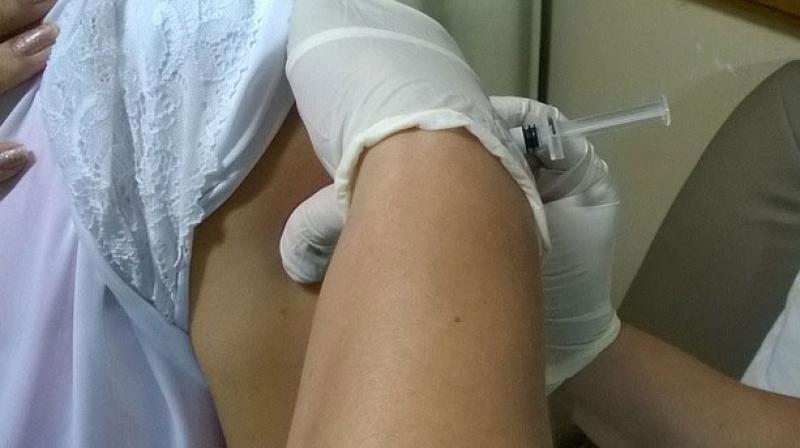Hormone specialists want more education about transgender patients
More than 80 percent of practicing specialists said they had never received training on transgender medicine.

Doctors who specialize in conditions involving hormones need more training on how to treat people who are transgender, suggests a new study.
Researchers found that transgender health was part of the curriculum at less than three quarters of endocrinology training programs that responded to an online survey. Additionally, more than 80 percent of practicing specialists said they had never received training on transgender medicine.
"We were aware that a deficit in education likely existed, however it was surprising how big this deficit is amongst clinicians in practice," wrote lead author Dr. Caroline Davidge-Pitts, of the Mayo Clinic in Rochester, Minnesota.
Gender identity is how people view themselves, that is, as male, female or something less specific. People who are transgender have gender identities that differ from the sex assigned at birth.
While awareness and acceptance of transgender issues has increased in the past decade, providing optimal care for patients is still challenging, the researchers write in The Journal of Clinical Endocrinology and Metabolism.
Endocrinologists often have a key role in that care. They specialize in the endocrine system, which regulates the body's hormones, and they may prescribe sex hormones like testosterone and estrogen to help transgender patients develop the physical characteristics tied to their gender identity.
Information is lacking on how much doctors in endocrinology training programs are taught about transgender care. There is also not much information on the training of doctors who are already in practice.
For the new study, the researchers sent a web-based survey to directors of 104 endocrinology training programs and received answers back from 54. About 94 percent said teaching about transgender care is important, but only about 72 percent included the topic in their curricula.
All programs covered the principles of hormone therapy for transgender patients, but only about 63 percent taught trainees to take comprehensive social and sexual histories on those patients. Also, only 40 percent taught trainees how to conduct physical exams on transgender patients.
"Endocrinology fellowships continue to face challenges adding transgender health topics to the curriculum and we need to be proactive about finding ways to improve this," Davidge-Pitts told Reuters Health.
The research team also sent surveys to nearly 7,000 medical doctors who were members of the Endocrine Society, but only a very small percentage - 411 doctors - responded. About 80 percent said they had treated transgender patients at some point during their career, but a similar proportion said they were never trained in the specifics of that specialized care.
Most of the doctors reported confidence in using proper terminology, taking histories and providing hormones, but few showed similar confidence discussing psychosocial and legal issues, surgical interventions and screening guidelines.
"In my view, the notable thing is that they're saying 'train me more,'" said Dr. Joshua Safer, medical director for Transgender Medicine and Surgery at the Boston University School of Medicine.
The researchers found that directors of training programs desire online programs for trainees and teachers, lectures and would like to attend meetings that discuss transgender topics. Similarly, practicing endocrinologists who responded to the survey wanted online training and presentations about transgender topics at academic meetings.
Safer, who was not involved with the new research, is working to update the Endocrine Society's 2009 guidelines on transgender care. "The real take-home message is the clinical population still feels unprepared," he told Reuters Health.
The new guidelines should go a long was to closing that gap, he added.

